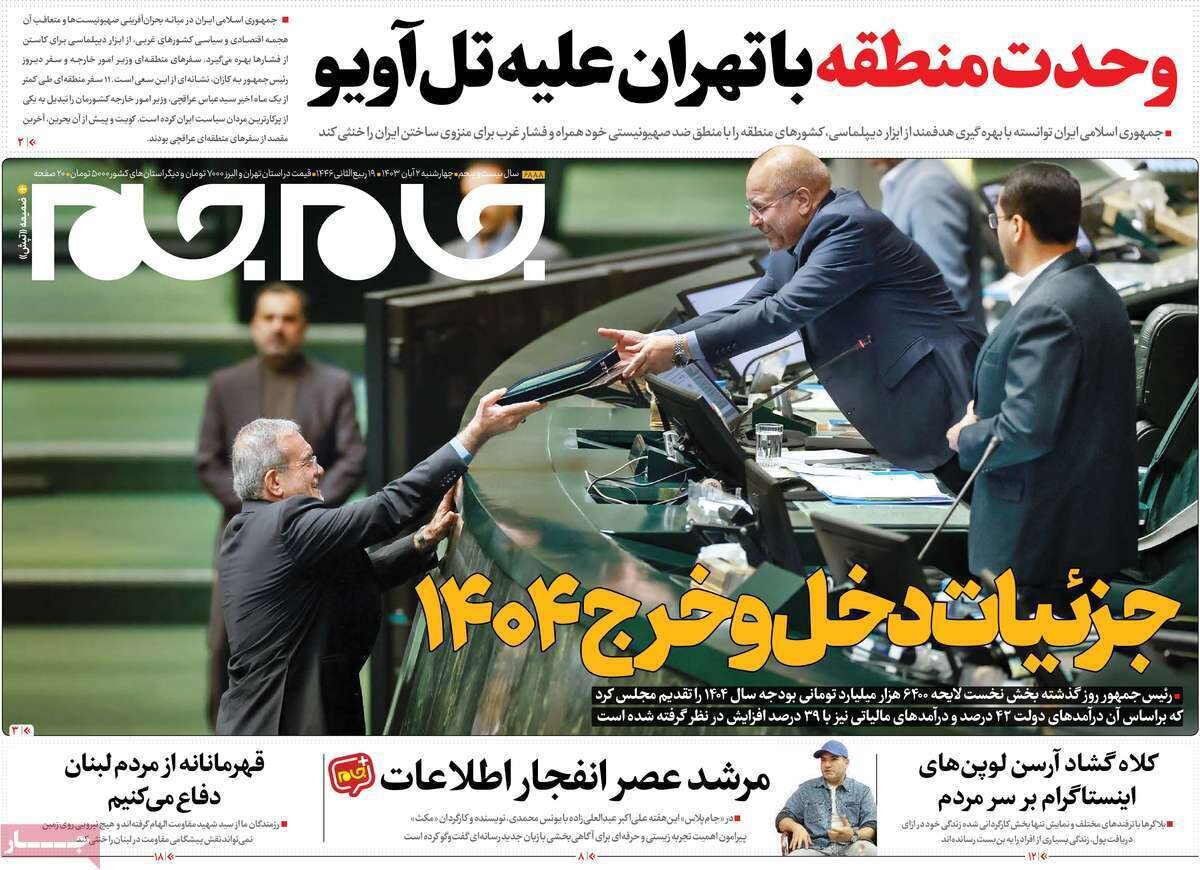BRICS, a nightmare of the West

TEHRAN - In an analysis, Jam-e-Jam discussed the importance of Pezeshkian's trip to Russia to participate in the BRICS meeting and wrote: Many experts consider BRICS a serious competitor for major Western economic blocs such as G7.
BRICS is a sign of the transformation of the world order and the transfer of power from the West to the East. Adding countries such as Iran and Saudi Arabia, two highly energy-rich countries, to BRICS, has added weight to the bloc, which will be a serious threat to the sovereignty of the dollar. The members of this economic bloc are seriously determined to de-dollarize and use national currencies or an agreed-upon currency by the BRICS. To realize the policy of de-dollarization, BRICS has started to create monetary and banking institutions, such as the World Bank and the International Monetary Fund. The presence of the president in the BRICS meeting can also be a prelude to the finalization of the strategic cooperation agreement between Iran and Russia, which is supposed to be decided after the BRICS summit.
Arman-e-Emrooz: "National security" is Iran’s most important priority
Arman-e-Emrooz discussed the current situation in Iran in an interview with Bijan Abdolkarimi, a university professor and social analyst. He said: This year has become one of the strangest years in recent decades in Iran. The events that have happened since the beginning of the year have led to confusion in society that can lead to a gap, and this gap will encourage the enemy to plan a wider war. The social gap prompted Netanyahu to send a message to the people of Iran and meet with Reza Pahlavi. Relying on this social gap, Netanyahu argues that the people of Iran are unhappy and puts himself in the role of a savior. This is a big lie because happiness never enters the country from outside the borders. Intellectuals should conclude that preserving Iran is the most important issue at this important juncture. The country's issues can only be dealt with when Iran is not facing a danger. Today, Iran's national security is being threatened, and clearly in such a situation it is difficult to resolve problems.
Donya-e-Eqtesad: The importance of travel to Bahrain
In a note, Donya-e-Eqtesad examined the importance of Foreign Minister Abbas Araghchi's visit to Bahrain and said: The visit of the Minister of Foreign Affairs to Bahrain and Kuwait in line with the continuation of regional diplomacy of the 14th (sitting) government to stop Israel’s war in Gaza and Lebanon and establish a ceasefire has sent important messages amidst widespread tensions in West Asia. If, in the current situation, the increase in regional tensions turns into a big conflict, it can again cause serious changes in the relations between Iran and the Persian Gulf Cooperation Council. Iran and Bahrain are trying to use the model of Iran-Saudi relations to manage regional disputes and preserve their bilateral ties. This means that if regional rivalries and challenges cannot be overcome it will be difficult to maintain and strengthen a relatively stable bilateral relationship. If Iran, Bahrain, and other Arab actors in the Persian Gulf region reach this understanding they can open a new page in their neighborly relations.
Hamshahri: De-dollarization and Trump's threat
In a commentary, Hamshahri addressed the BRICS summit in the Russian city of Kazan and the West's concern about it. It wrote: The leaders of the world's emerging economies have visited Russia to attend the BRICS meeting. As we know the policies adopted by BRICS have endangered the continuation of the current unilateralist Western order. The BRICS+ group has "de-dollarization and creation of a common payment system" on its agenda, and important steps have been taken in this regard. Also, BRICS members have taken extensive measures to counter Western sanctions. Replacing SWIFT with "BRICS Pay" is one of its manifestations. These cases have caused major concerns in America to the extent that Trump recently reacted to the growing trend of removing the dollar from global transactions during one of his election campaigns. He promised American voters that he would stop this process. At the same time, Trump warned that abandoning the dollar would be costly for the countries pursuing this strategy, and the United States will impose unprecedented tariffs on imports from countries seeking to eliminate the dollar from foreign trade.
